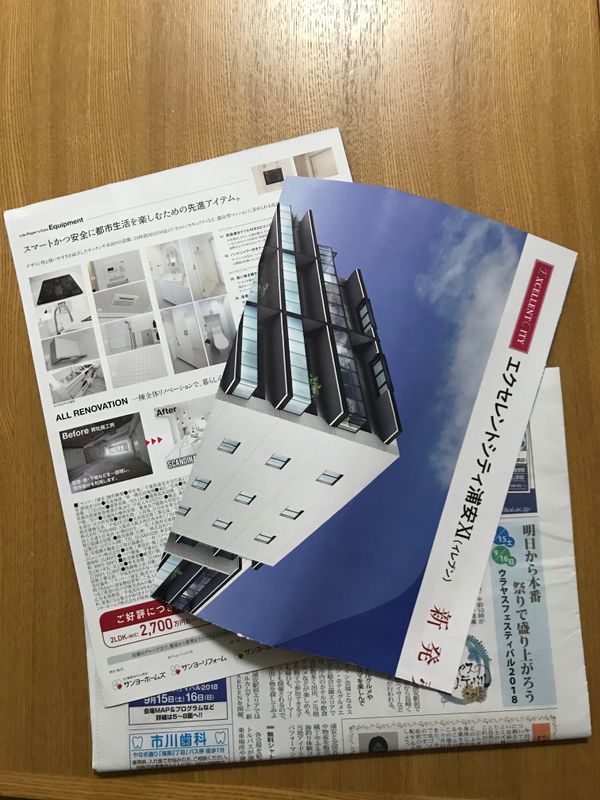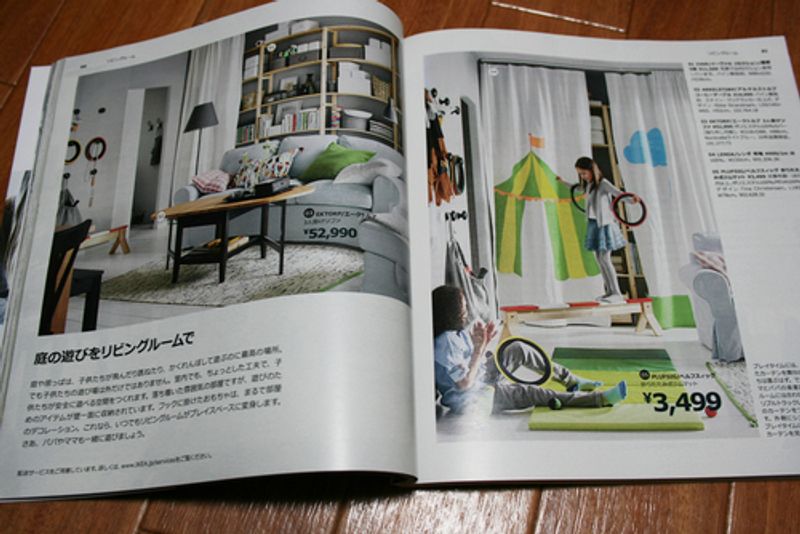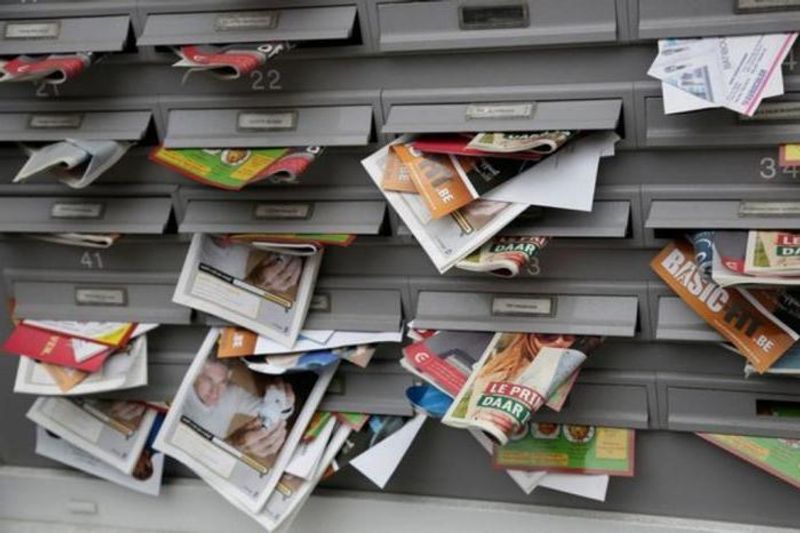Oct 11, 2018
Advertisement flyers: How relevant are they, really?
Somebody had just posted an article right here on City-Cost on how much Japan loves paper. That post focused mostly on excessive printing and manual documentation in offices. Actually, there is another proof of Japan's obsession with paper - and we need not look far to see it. All you have to do is check your mailbox. I don't know about you but not a day goes by that I don't see a flyer in our mailbox for anything - food delivery, plumbing services, newly-built condominiums, different types of classes, etc.

There was even a time when, not just a single sheet of paper, but an entire book was in our box! It was a catalogue from a well-known furniture shop. Now, that book was not thin at all, and the pictures in it were in full color! Initially I wanted to keep the catalogue and maybe donate it to a friend of mine who teaches kids (so she can use it for some of her projects with them - or for her own scrapbooking projects), but in the end that thick book filled with nice furniture went to the bin.

Japan's special preference for flyers still bewilders me to this day. These past few days especially, I have to admit, I've begun to question how effective these flyers are as an advertising or even as an information dissemination tool - both in terms of intended audience reach and cost.
A school manager recently got into a bit of trouble when he got a call from authorities of a bicycle parking lot in front of a train station, saying that a big pile of the school's flyers had been dumped illegally in someone's bicycle basket and that the flyers were floating around the parking lot being blown by the wind and soaked by the rain, making a big mess. The flyers apparently had been placed in individual baskets and people had thrown them on the ground once they came to get their bicycles. The next day the manager went to the bicycle parking lot and apologized for the mess created by the flyers, yet still he was made to call the city hall to explain himself, after which he was warned about putting things in baskets.
Most likely that situation is not uncommon. Let's face it, when we see flyers in our apartment mailbox, or handed out to us at the train station, or enclosed in our actual mail, what do we immediately do with those? Ok, we would probably look at them briefly and then what? We put them in the trash, right? And then just after a few minutes, we have completely forgotten what was written on those flyers. Most of us, with our busy schedules and even busier minds, would almost automatically ignore the flyers that come our way.
Yes, some might argue that we as readers should probably pay more attention to those written announcements, as they might be important. Just recently, I found out (much to my dismay) that national health insurance premiums increase significantly as we reach the age of 40 here in Japan. I missed out on that valuable information just because I immediately threw away that small brochure that came with my annual pack of insurance bills. (In my defense, apart from my poor Japanese, that detail was written in one of the middle pages of that brochure).
Going back. Imagine if all flyer recipients will only throw those sheets of paper, what a waste isn't it? It's a waste of the advertiser's money (or in the case of those government information brochures, taxpayers' money). More importantly, the sheer amount of paper and ink consumed in printing those flyers causes continuous depletion of our trees and adding further damage to our environment.

Maybe flyers were effective tools in spreading information and promotions. But times have changed - and so does our climate. Even if these companies start using recycled paper, with everything that has been happening to our dear planet, maybe Japan should start considering other ways to disseminate information.



1 Comment
helloalissa
on Oct 14
There are tons of paperless / eco options and advertising hasn't worked for years. Let's hope this slow to change country will figure it out quick to help the environment.